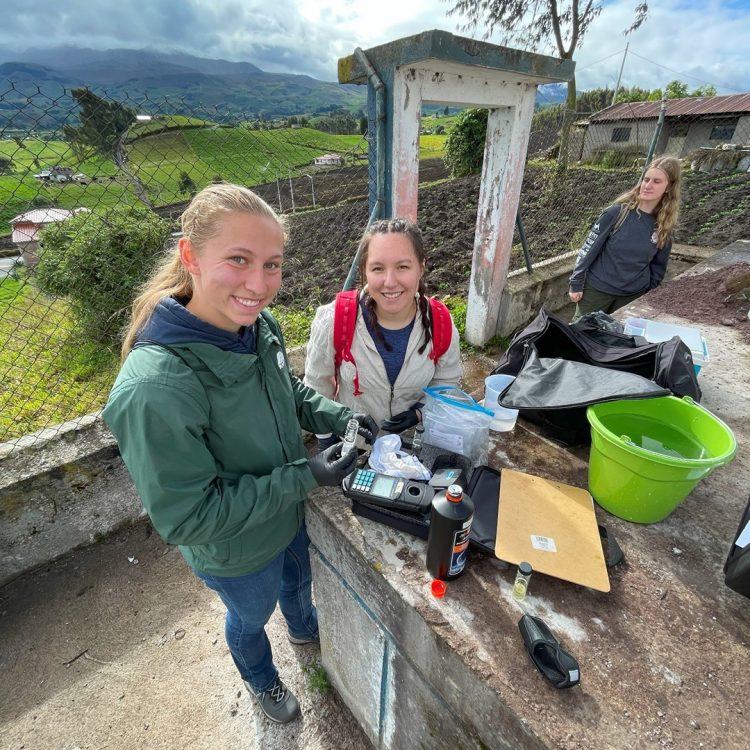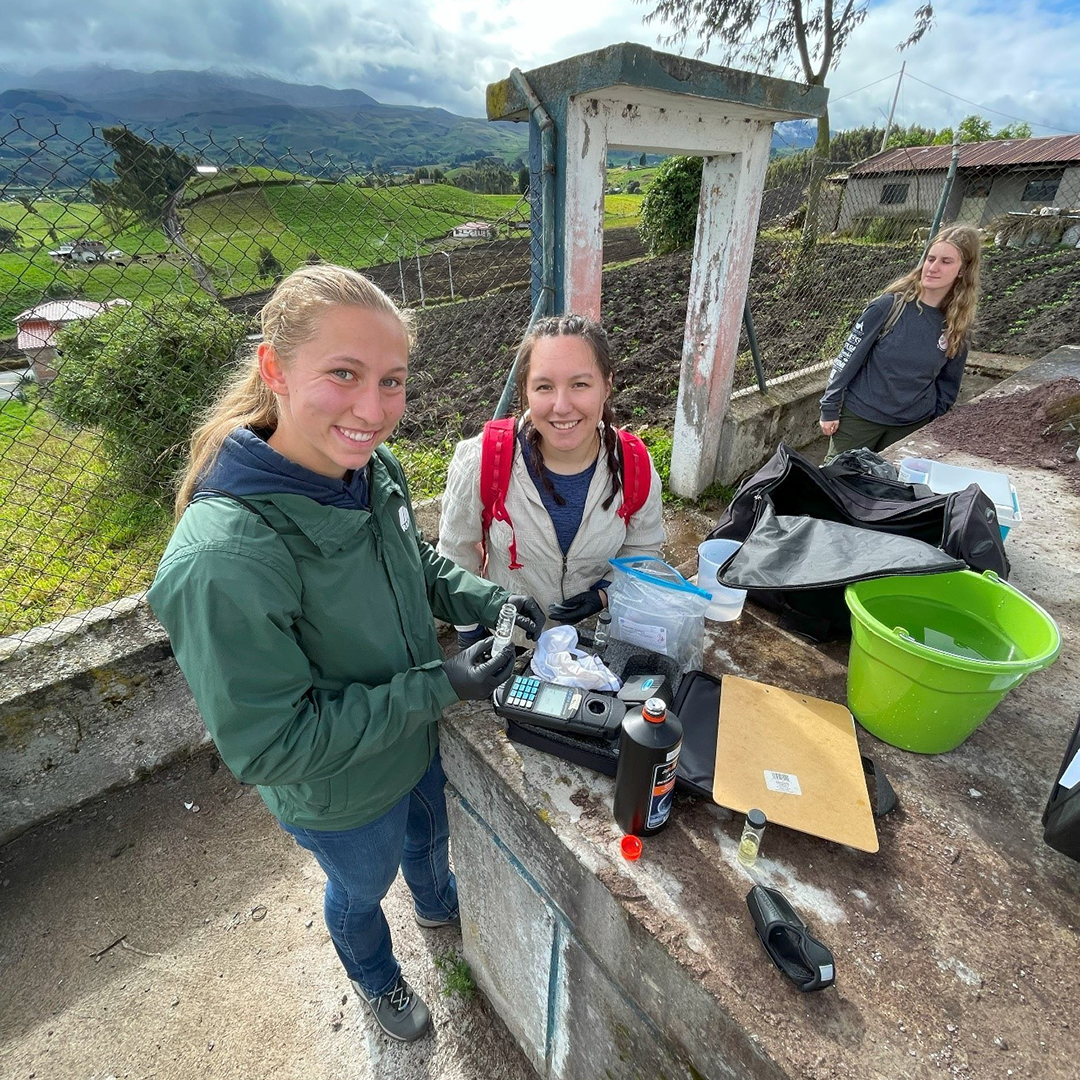Stephenson part of Trine mission to provide clean water


For the second time, Trine University engineering students are working to help improve an Ecuadorian community’s access to clean drinking water. Students from the university’s Engineers Without Borders (EWB) Student Chapter, recently returned from the rural community of Tuntatacto, nestled in the Andes highlands, about 130 miles south of Quito.
Tuntatacto, home to approximately 1,200 residents, relies heavily on agriculture and livestock, cultivating crops, such as corn, beans, onions and potatoes, and raising animals, including chickens, cows, rabbits and guinea pigs.
Currently, the community’s drinking water comes from spring water, that flows by gravity to storage tanks located above the town, before being distributed to homes. However, during the dry season, the spring’s flow becomes insufficient to meet demand.
From 2017-22, teams from Trine’s student chapter of EWB, worked in tandem with the Indianapolis professional chapter of EWB, to increase the amount and quality of drinking water for the community of Comuna Guangaje, another remote village in Ecuador.
The final Trine team to visit Comuna Guangaje, found that efforts to improve its drinking water supply exceeded expectations.
In June of this year, four Trine students, EWB faculty adviser Tim Tyler and Veronika Meyer, a water resource engineer from the City of Fort Wayne, traveled to Tuntatacto, to assess the situation and collaborate with local residents.
Emma-Lyn Stephenson, a civil engineering major from Cadott, was interested in the opportunities offered by EWB, even before she committed to a university.
“During college tours, I kept hearing about the incredible experiences EWB provides,” she said. “It is not just hands-on engineering. It is a chance to contribute to global service, grow as a leader and make a meaningful impact.”
The experience started with a long day of travel. The group left at 8 a.m., and landed at 10 p.m., in Quito, followed by an hourlong drive to their hotel, with a stop at McDonald’s, for a snack.
“That first night, I could not sleep,” said Stephenson. “It was not from jet lag or uncertainty. I simply could not believe I had this opportunity and I was eager to get started.”
The group collected as much data as possible on the town’s drinking water system. They surveyed the existing water infrastructure, including the two main storage tanks in Tuntatacto, as well as various tanks along the water route, conducted water quality and flow rate tests, and evaluated the conditions of current catchment systems.
As part of the assessment, the team climbed the slopes of the inactive Chimborazo volcano, adjacent to the community, to explore the feasibility of capturing run-off from a permanent snowfield, at an elevation of approximately 14,000 feet.
The team, accompanied by about 40 community members, piled into the back of pickup trucks, to start the journey. Following an hour-long drive through the countryside and up the mountain, they continued on foot, led by community members.
“We could not have done it without the community,” said Stephenson. “At every step of the way, someone was there to help.
If there was a big drop, they offered a hand. If the mud threatened to go over our boots, they laid down rocks. And through it all, they kept spirits high.”
At each location, the Trine group collected samples, and performed on and off-site testing. Preliminary results from water quality and flow tests from the snowfield appeared promising, and may help supplement the water supply during the dry season.
The team’s findings will guide the design of a sustainable improvement project, to ensure Tuntatacto has a reliable, clean water supply, year-round. Over the next six months, the team will conduct an alternative analysis and finalize design plans.
Once complete, they plan to return to oversee construction and provide technical support, empowering the community, with a lasting, affordable solution.
“This is a project I hope to see through to the end and I am looking forward to the day we can implement our solutions for their water supply,” said Stephenson.



